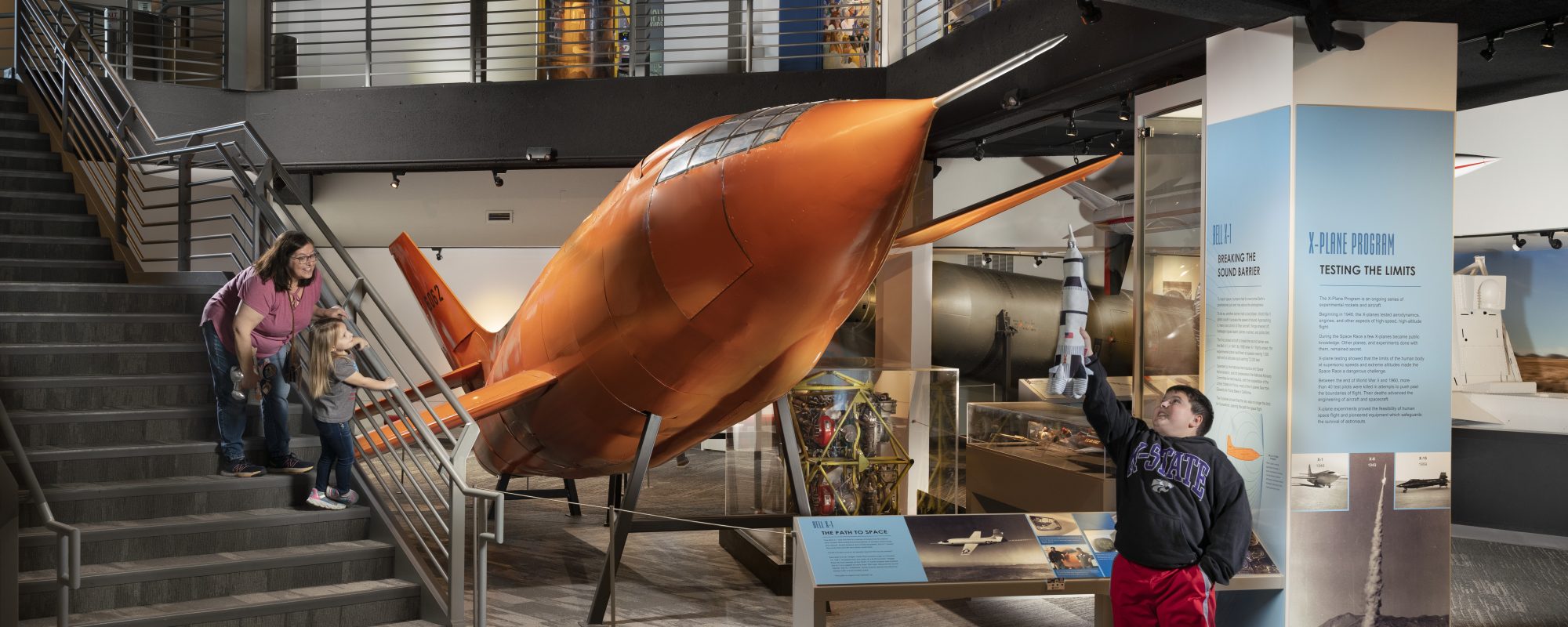With NASA Flight Director Gerry Griffin and Cosmosphere Camp Alumnus Sandy Marshall
“Preparing for a Lightning Strike”
By Sandy Marshall
In October 2020, as part of the Cosmosphere’s Onward and Upward virtual broadcast, I had the honor of sitting down with the great Gerry Griffin, former director of NASA’s Johnson Space Center and legendary flight controller in Mission Control. He was the lead flight director on Apollo 12, Apollo 15, and Apollo 17…and his team played a critical role in the safe return of the astronauts on Apollo 13.
Below are a few excerpts from our conversation, in which Gerry shared lessons from the Apollo era, advice for the next generation of space explorers…and a story about the day lightning struck Apollo 12 less than a minute after liftoff.
Let’s start at the beginning: Could you talk about some of your early teachers and mentors, and lessons you’ve kept in mind throughout your career?
I remember one high school teacher I had, and her name was Garrett. Catherine Garrett. And she didn’t teach a technology course, she taught American history, and that we should always keep pushing the frontier. Push the frontier, that’s how we opened the American West, and that it was not easy. And she talked a lot about the hardness of it.
And I remember I have used that as an analogy, because it was the same thing trying to push the frontier of space.
So when you were pushing the frontier of space and planning missions to the Moon, how did you know what problems to prepare for? Did you have to invent potential problems, and then think of how to solve them?
I think when you first get into this business, the business of space, you don’t know what problems you’re gonna face, and you kind of have to just be prepared for anything.
This was the strength of the Apollo program. And when I say Apollo, I include Mercury and Gemini in there, because they were pieces leading up to getting a man on the Moon, as Kennedy laid out the goal. Once we had a mission and we knew what we were going to do, then the problems became more definable.
One of the strengths of the Apollo program was the simulation — the training — that we went through.
We would run days of simulations that were nothing other than launches. And the simulation guys could put faults in that we weren’t expecting (but of course we had thought about), and they would check us to see how we handled it. We would be in Mission Control, and the Astronauts would be in a simulator, and we were separated in two separate buildings.
But we were connected with data.
And that training, that repetitive training over and over, we’d take maybe in a week — I bet we’d run 20 of them in a week — after every one, we debriefed with the crew and with every person in Mission Control on the same com loop. We would debrief what we did right, what we saw, and then the simulation guys would step in and say, “…okay, you did that one okay, but you missed this. And you could have done it that way, and it would’ve been a lot easier.”
That training was absolutely invaluable.
And so I think it all goes back to critical thinking and problem solving. And that’s the challenge.
Like when lightning hit us on Apollo 12, and I was in the Flight Director seat. But even when it’s all over, you say, boy, you know, we handled it. Got it. Okay.
What do you do when you’re launching Apollo 12 and lightning strikes? What goes through your head? What happens in the room? How did you solve that problem?
Well, the lightning strike on 12 was a really big issue. I thought we might have to abort, and my first thought was, I didn’t know what this was. We didn’t know it was a lightning strike. We just lost all the data, and Pete Conrad, the Commander, started reading off caution and warning signals that he had on a display, and it was clear that the electrical system had been pretty well compromised.
And my first thought was: this could be serious. But we had a plot. And this came back to that training. The simulation. We had a plot on the big board in the front of the room. And the first thing I looked at, and found, was that all the engines were still burning, and we were right on the trajectory.
So my first thought: don’t do anything too fast.
You got time here.
And let’s see what we got.
And John Aaron, a Physics major from a small school in Oklahoma [EECOM on Apollo 12], I think he was 23 or 24, said “Tell him to try SCE to AUX,” which has become kind of famous now. Signal Conditioning Equipment to Auxillary: that’s what that switch actually handled. And they went to the auxiliary position, and we got the data back.
So a lot of problems that happen in space are much slower than a lightning strike: they creep up on you. The oxygen tank explosion on 13 was very rapid, and had to be dealt with in a hurry. But those kinds of problems are why we were there, why Mission Control was there, and why the Astronauts were trained as well as they were.
My good friend Fred Haise on Apollo 13 did a fantastic job of analyzing the lunar module systems on the way home.
And of course, we had computers and people and all that, and to tell you the truth, I think Fred had it figured out about as well as we did.
To hear more exciting stories from the Apollo era, join Coffee at the Cosmo: Apollo and Mission Control–Saying “Yes, And” to Collaboration, where Sandy will be joined by Gerry Griffin for a live Q&A. This virtual event will take place on Thursday, January 21, 2021 at 9 am CST on the Cosmosphere’s Facebook Page or on Zoom.
Gerry Griffin is the former Director of the NASA Lyndon B. Johnson Space Center in Houston. In prior positions at NASA he served as the Deputy Director of the John F. Kennedy Space Center in Florida and the Hugh F. Dryden (now Neil A. Armstrong) Flight Research Center in California. Gerry was the Lead Flight Director for Apollo 12, Apollo 15 and Apollo 17. His Gold Team conducted half of the lunar landings made during Apollo, and his team played a critical role in the safe return of the astronauts on Apollo 13.
Sandy Marshall (@MarshallSandy) is an Emmy-nominated writer/producer, business speaker, TV/film actor (Odd Squad, The Dilemma), Solar System Ambassador for NASA’s JPL, and co-creator of REACH: A Space Podcast for Kids. Sandy holds a B.A. in History from Drake University (where he later served on the Board of Trustees), and is a former Cosmosphere Camps counselor.
VIRTUAL COFFEE AT THE COSMO: APOLLO AND MISSION CONTROL–SAYING “YES, AND” TO COLLABORATION
Join us on Thursday, January 21 at 9:00 am CT, for Virtual Coffee at the Cosmo on the Cosmosphere’s Facebook page on the day of the event or on Zoom.
Grab your mug of Joe, sit back in the comfort of your own home and enjoy this free presentation on “Apollo and Mission Control: Saying ‘Yes, And’ to Collaboration.”
On April 13, 1970, NASA’s Apollo 13 mission was aborted after an oxygen tank ruptured on the way to the Moon. 3 astronauts were on board. They all came home. Later classified by NASA as a “successful failure” because of experience gained in rescuing the crew, Apollo 13 has become a case study of quick thinking, problem solving, and working together as a team.
Fast forward to today’s disruptive business world, where leaders work to create agile, virtual environments and manage change. Working remotely as a team is now mission critical, and there’s a lot we can learn from Mission Control.
Tune-in to “Coffee at the Cosmo” (home of the flown “Odyssey” Command Module), and learn about what Apollo 13’s “successful failure” — and other stories of Mission Control — can teach us about agility, problem solving, effective communication, and working together.
Presented by Sandy Marshall, Cosmosphere volunteer, Emmy-nominated writer/producer, business speaker, and former Cosmosphere Camps counselor.
Sandy will be joined for a live Q&A by Gerry Griffin, former director of NASA’s Johnson Space Center and legendary flight director. Gerry served as lead flight director of Apollo 12, Apollo 15, and Apollo 17. His Gold Team conducted half of the lunar landings made during Apollo, his team played a critical role in the safe return of the astronauts of Apollo 13.
Learn about parallels between the mission control environment, core principles of the Yes, And method of collaboration, and bring your questions for a live Q&A with Gerry Griffin.
Because when your flight plan changes in the middle of a mission, your most important asset is your team.
*Coffee at the Cosmo topics and speakers are subject to change.
Thank you to our corporate partners: Airshare, Evergy, The Clayworks of Disability Supports, Dillons, KU School of Engineering and RCB Bank



